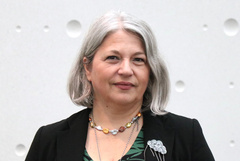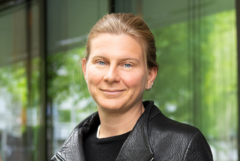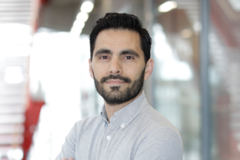CECAD aims to reveal the mechanisms that underlie the aging process and its associated diseases. Aging affects a large variety of physiological processes ranging from molecular and cellular signaling mechanisms to systemic adaptations of the aging organism.
The overarching long-term scientific mission of CECAD is to develop effective, evidence-based prevention strategies for major aging-associated diseases, with the aim to extend the healthy lifespan and to mantain quality of life during aging.
Based on breakthrough discoveries of CECAD scientists in the previous funding periods, CECAD has expanded its scope in its third funding period beyond the analysis of cell-autonomous stress signaling pathways to the investigation of the role of inter-organ communication and the integration of internal signals and external environmental cues in the aging process. CECAD scientists are exploring the key mechanisms of aging in three defined research areas.
Supporting these three research areas, CECAD has successfully established three research platforms.
Cell autonomous control of homeostatic mechanisms and cellular stress responses in aging and age-associated diseases
Aging is characterized by the decline of physiological integrity, which culminates in functional defects and increased risk for age-associated diseases. Cell autonomous deficits include disturbances in cellular proteostasis, organellar homeostasis, and genome integrity, which in turn can elicit multiple adaptive signaling pathways and cellular stress responses.
Stress response mechanisms of tissue-related and interorgan communication in aging and age-associated diseases
During the aging process, different stress response pathways, such as the unfolded protein response (UPR), the mitochondrial stress response (MSR), and the DDR – as studied in RA-1 – are tightly coordinated. Through this coordination they ensure physiological integrity especially when metabolic changes challenge the overall system.
Environment/organism interactions in aging and age-associated diseases
The organism constantly has to integrate information about the internal state with external environmental cues to adapt behavioral and autonomic responses to ensure the correct, optimal physiological homeostasis. The integrated coordination of internal signals with external environmental cues determines lifespan and the onset of age-associated diseases.

Prof. Dr. Aleksandra Trifunovic
Principal Investigator
Head of Research Area 1
aleksandra.trifunovic[at]uk-koeln.de
CECAD Research Center
Universität zu Köln
Joseph-Stelzmann-Str. 26
50931 Köln
Profile

Prof. Dr. David Vilchez
Principal Investigator
Head of Research Area 1

Prof. Dr. Christian Frezza
Principal Investigator
Alexander von Humboldt Professor of Metabolomics in Aging
Head of Research Area 2
christian.frezza[at]uni-koeln.de
Metabolomics in aging
Room: 4.068
CECAD Research Center
Joseph-Stelzmann-Str. 26
50931 Köln

Dr. Anne Schaefer
Principal Investigator
Director of MPI for Biology of Ageing
Head of Research Area 2

Prof. Dr. Filipe Gomes Cabreiro
Principal Investigator
Head of Research Area 3

Prof. Dr. Tatiana Korotkova
Principal Investigator
Institute Director
Head of Research Area 3